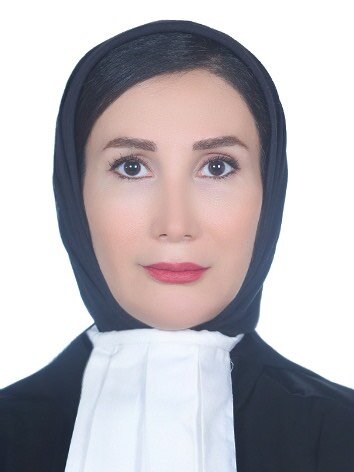Best Foreclosure Lawyers in Iran
Share your needs with us, get contacted by law firms.
Free. Takes 2 min.
Free Guide to Hiring a Real Estate Lawyer
Or refine your search by selecting a city:
List of the best lawyers in Iran
About Foreclosure Law in Iran:
In Iran, foreclosure refers to the legal process through which a lender can take possession of a property that was used as collateral for a loan that has not been repaid. Foreclosure laws in Iran are governed by specific regulations and procedures that must be followed by both lenders and borrowers.
Why You May Need a Lawyer:
It is essential to seek legal advice in foreclosure situations to ensure that your rights are protected. Common situations where you may require a lawyer include negotiating with lenders, understanding legal documents, defending against a foreclosure lawsuit, and exploring foreclosure alternatives.
Local Laws Overview:
In Iran, foreclosure laws are based on Islamic principles and the Civil Code. The foreclosure process typically involves notifying the borrower of default, holding public auctions, and transferring property ownership. It is crucial to understand the legal requirements and deadlines involved in foreclosure proceedings.
Frequently Asked Questions:
1. What is the foreclosure process in Iran?
The foreclosure process in Iran involves notifying the borrower of default, holding public auctions to sell the property, and transferring ownership to the highest bidder.
2. Can I negotiate with my lender to avoid foreclosure?
Yes, it is possible to negotiate with your lender to explore alternative solutions such as loan modification, refinancing, or repayment plans.
3. What are my rights as a borrower in a foreclosure proceeding?
Borrowers have the right to receive notice of default, participate in the foreclosure process, and contest the foreclosure in court.
4. How can a lawyer help me in a foreclosure situation?
A lawyer can help you navigate the legal complexities of foreclosure, negotiate with lenders, defend against foreclosure actions, and explore alternatives to foreclosure.
5. What are the consequences of foreclosure in Iran?
The consequences of foreclosure in Iran may include losing the property, damaging your credit score, and facing legal action from the lender.
6. Are there any foreclosure prevention programs in Iran?
There are no specific foreclosure prevention programs in Iran, but borrowers can seek assistance from legal aid organizations or financial institutions.
7. How long does the foreclosure process take in Iran?
The foreclosure process timeline can vary depending on the specific circumstances of the case, but it typically takes several months to complete.
8. Can I stop a foreclosure once it has started?
It may be possible to stop a foreclosure once it has started by working with a lawyer to negotiate with the lender, file for bankruptcy, or contest the foreclosure in court.
9. Is foreclosure always the final step in the process?
Foreclosure is the final step in the process of repossessing a property, but there may be opportunities for borrowers to prevent or delay foreclosure through legal action or negotiations with the lender.
10. How can I find a qualified foreclosure lawyer in Iran?
You can find a qualified foreclosure lawyer in Iran by seeking referrals from legal aid organizations, bar associations, or conducting online research to identify experienced attorneys in this field.
Additional Resources:
For additional resources related to foreclosure in Iran, you can contact the Ministry of Justice, bar associations, legal aid organizations, or seek guidance from financial institutions.
Next Steps:
If you require legal assistance in a foreclosure matter in Iran, it is essential to consult with a qualified lawyer who can guide you through the legal process, protect your rights, and explore options to avoid foreclosure. Take prompt action to address any foreclosure issues and seek professional legal advice to safeguard your interests.
Lawzana helps you find the best lawyers and law firms in Iran through a curated and pre-screened list of qualified legal professionals. Our platform offers rankings and detailed profiles of attorneys and law firms, allowing you to compare based on practice areas, including Foreclosure, experience, and client feedback.
Each profile includes a description of the firm's areas of practice, client reviews, team members and partners, year of establishment, spoken languages, office locations, contact information, social media presence, and any published articles or resources. Most firms on our platform speak English and are experienced in both local and international legal matters.
Get a quote from top-rated law firms in Iran — quickly, securely, and without unnecessary hassle.
Disclaimer:
The information provided on this page is for general informational purposes only and does not constitute legal advice. While we strive to ensure the accuracy and relevance of the content, legal information may change over time, and interpretations of the law can vary. You should always consult with a qualified legal professional for advice specific to your situation.
We disclaim all liability for actions taken or not taken based on the content of this page. If you believe any information is incorrect or outdated, please contact us, and we will review and update it where appropriate.
Browse foreclosure law firms by city in Iran
Refine your search by selecting a city.

















